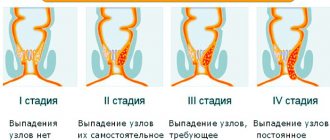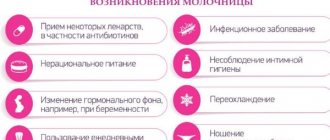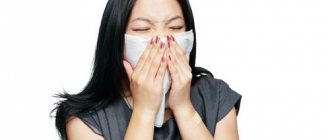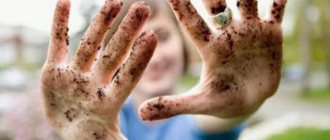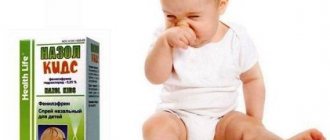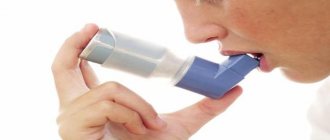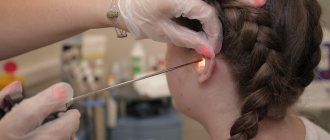Sinusitis becomes a consequence of incompletely cured rhinitis. The disease affects the paranasal sinuses. In this disease, they fill with mucus or pus, causing nasal congestion and headaches. In such a situation, you definitely need to go to the doctor and buy the medications prescribed by him at the pharmacy.
However, industrial medicines can be supplemented with traditional methods of therapy. Herbal decoctions, inhalations, and homemade drops can help the patient. However, folk remedies for sinusitis in no way replace the achievements of traditional medicine.
Treatment of sinusitis with folk remedies also requires prior consultation with a doctor. It is important to consider the compatibility of various medications and the characteristics of the patient’s body. Otherwise, herbs for annoying sinusitis will cause harm instead of the desired benefit. We will tell you below how to treat sinusitis using traditional methods.
Symptoms and first signs of sinusitis
Typically, symptoms of the disease appear 5-7 days after contracting a viral infection. But how to distinguish sinusitis at home from another disease? You can do this by recognizing common symptoms and signs of the disease:
- Headache
- Increased sensitivity of facial skin
- A sore throat
- Feeling of nasal congestion
- Facial swelling
The pain intensifies when pressing on the cheek or nose. Another important sign is that you may observe purulent discharge from the nose, which has an unpleasant odor.
Chronic sinusitis - symptoms
Most often, patients with chronic inflammation of the mucous membrane experience the following symptoms:
- Colorless nasal discharge or mucus that drains into the respiratory tract (postnasal drip).
- Nasal congestion or difficulty breathing.
- Pain and swelling around the eyes, forehead, cheeks and nose.
- The sense of smell decreases.
- Fatigue or irritability.
- Pain in the ear and throat.
- Bad breath (halitosis).
- Nausea.
- Pain in the upper jaw teeth.
For chronic sinusitis, doctors advise taking short preventive courses using folk remedies. This helps improve the general condition of the patient and soon completely cure this disease.
Sinusitis catarrhal - symptoms
You should immediately consult a doctor if you notice symptoms of catarrhal sinusitis, since the viral infection quickly spreads to other sinuses and this can cause swelling and redness of the skin around the eyes, fever, and chills.
Symptoms of this disease appear as follows:
- When excess mucus accumulates in the maxillary sinuses under the eyes and in the cheekbones, a feeling of pain and pressure appears.
- Weakness appears.
- Strong headache.
- Some patients also experience difficulty breathing through their nose.
Important: When taking handfuls of medications during treatment, do not forget about folk remedies that enhance the effect of the tablets.
Hormonal
Hormonal drops for sinusitis are prescribed only by a specialist, as they have a number of serious contraindications. Most often, hormonal sprays are used for allergies, but their use is also allowed in case of severe swelling and a tendency to develop complications.
Nasonex
Dosed nasal spray consists of a complex of substances. The active ingredient is mometasone. The synthetic hormone has a number of actions:
relieves inflammation;- relieves swelling;
- normalizes the breathing process.
The medicine is expensive, but has a high therapeutic effect. Side effects occur with prolonged and unreasonable use of the drug in the form of dry mucous membranes. The medicine is not applicable to children under 3 years of age, pregnant women and elderly patients due to insufficient study of mometasone.
The medicine is used once a day, but only with the permission of the otolaryngologist.
Flixonase
A well-known topical hormonal agent used in the treatment of allergies is Flixonase spray. It is known that in most cases, sinusitis is caused by bacteria or viruses. Flixonase in this case acts as part of a complex treatment to relieve hypersensitivity and swelling of the nasal passages.
The active substance - fluticasone (GCS) has a number of side effects, so it is not recommended to use the product for young children (permitted age 5 years) and pregnant women. The medicine is not a budget drug due to its universal composition. The spray is used once, and the therapeutic effect lasts up to several days.
Avamis
The active ingredient is fluticasone. The substance has a wide spectrum of action, as it causes the death of pathogenic agents, including fungi. The medicine has the ability to accumulate, for this reason it is not recommended to use the spray for more than 5 days. Contraindications include children under 4 years of age, hormonal imbalance.
Avamis, Flixonase and Nasonex can rightfully be called analogues, since the purpose of use, composition and side effects are the same. The differences are the active component and mechanism of action.
Causes of sinusitis in adults and children
The most common cause of this disease is an incompletely treated runny nose. In some cases, allergies can trigger the disease.
When germs enter the sinuses, the body, due to decreased immunity or allergies, cannot provide the necessary resistance to infections. Due to swelling, ventilation in the sinuses stops and after that they gradually begin to fill with mucus. Pus, filling the sinuses, is absorbed into the blood and poisons the entire body. If the disease is not treated, it will become chronic.
How is purulent sinusitis dangerous?
In this form of the disease, pus spreads close to the brain and eyes. This can provoke the development of serious complications.
Purulent sinusitis brings great discomfort to the patient and is accompanied by the following symptoms and signs:
- Purulent discharge from the nose.
- Erythema of the mucous membrane.
- Periorbital edema.
- Facial erythema.
This type of disease is life-threatening even for an adult and requires immediate treatment with medications and folk remedies. The pus poisons the body and the general condition begins to deteriorate. The presence of pus indicates the likelihood of a severe stage of sinusitis, when surgical intervention is required.
What is the difference between sinusitis and sinusitis?
These two diseases are very similar to each other. Many of their symptoms and complications are no different from each other.
Sinusitis is an inflammation of one or more sinuses. According to the nature of the course, the disease is divided into acute and chronic sinusitis.
Sinusitis (unilateral or bilateral) is an inflammation of the maxillary sinuses that occurs due to complications after infectious diseases.
Methods of treating diseases, medications and folk remedies are the same.
Prevention of sinusitis in children
In order to prevent the occurrence of the disease, it is necessary to take into account the following measures for the prevention of sinusitis:
- At the first sign, immediately treat nasal congestion caused by allergies or a cold.
- Avoid contact with people with colds or other viral upper respiratory tract infections for prevention purposes. After contact with infected people, you should wash your hands thoroughly with soap.
- Avoid cigarettes and try to stay away from areas where people smoke. Cigarette or any other smoke irritates the inflamed lining in the nose and sinuses.
- If you have allergies, you should take all measures to prevent an allergic reaction.
- Try to inhale less dry air. You can purchase a humidifier for your home or work.
Make sure your child has all required vaccinations. For example, the pneumococcal vaccine can prevent ear and sinus infections. This is considered the best way of prevention, and if the child does get sick, the disease will be mild.
During the period of prevention, folk remedies are ideal, which can not only protect the body from microbes, but can also cure the disease at an early stage.
Solutions for nasal instillation
Therapy with nasal drops for sinusitis is always used. The selection of medications is carried out depending on the direction of treatment.
Vasoconstrictors
Used as an aid to relieve swelling and free movement of mucus in the sinuses. Most often prescribed:
- Xylometazoline;
- Naphazoline;
- Otrivin;
- Sanorin;
- Oxymetazoline;
- Phenylephrine.
Vasoconstrictor solutions are often used before rinsing and local treatment. The listed products have many analogues and differ not only in cost, but also in the percentage of active components.
Most vasoconstrictor drops are addictive, so the duration of their use should not exceed five days.
Combined
Complex or combined solutions for instillation have several types of effects at once. Among them are the more well-known remedies against the common cold:
- Rinofluimucil (relieves swelling and promotes mucus removal);
- Pinozol, Sinuforte (they are mixtures of essential oils, kill pathogenic bacteria, facilitate breathing, and have an inhalation effect);
- Vibrocil, Rhinopront (relieve swelling and eliminate symptoms of an allergic reaction);
- Polydexa (kills germs, narrows capillaries).
Among the medications for sinusitis, the most effective are often combination medications, since they have several types of effects at once.
How to treat sinusitis?
Treatment of this disease is carried out with the help of medications and folk remedies at home.
Treatment goals:
- Improve mucus drainage and reduce swelling in the sinuses.
- Relieve pain and pressure.
- Eliminate bacterial infection at the first sign.
You may also need surgery if you have been taking antibiotics or folk remedies for a long time, but the symptoms of the disease have not gone away. Only the attending physician can prescribe a course of treatment. You should not self-medicate, as this can lead to undesirable consequences.
Treatment of sinusitis at home - treatment methods and medications
The disease can be treated at home using folk remedies and medications (drops or rinsing solution).
Many doctors prescribe the following medications to their patients:
- Painkillers. Many doctors advise taking Ibuprofen and Acetaminophen (paracetamol) to reduce pain and eliminate discomfort.
- Decongestants. These medications significantly reduce the amount of mucus in your sinuses. Some of them come in the form of nasal sprays.
- Steroids . In some cases, your doctor may prescribe inhaled steroids to reduce swelling in your sinuses.
- Antibiotics. If the disease is due to a bacterial infection, then you should take antibiotics. Treatment of acute sinusitis lasts no more than two weeks.
An example of good broad-spectrum antibiotics for adults: Ampicillin, Ticarcycline, Levofloxacin, Gatifloxacin, Aminoglycosides: Streptomycin, Imipenem, Meropenem.
Solution for rinsing the nose at home for sinusitis
Saline solution for rinsing the nose at home is a good way to cope with the disease. Rinsing your nose with this solution gives positive results within a couple of days. With this procedure, all germs, allergens and dust particles are removed from the surface of the nasal mucosa.
The most effective solution for rinsing the nose is salt water. Saline solution (sodium chloride) for rinsing the nose at home can free the sinuses from mucus and reduce swelling. Even children can carry out this procedure on their own, the main thing is not to swallow the solution, but try to rinse the nose with it. If it is a child who is rinsing the nose, make the solution less concentrated and add a little warm boiled water.
How to quickly treat sinusitis at home in an adult
There are several tips for quickly and easily treating the inflammatory process of the mucous membrane in an adult:
- Drink plenty of fluids (unsweetened juices, tea, water, etc.). Also try to get rid of smoking, drinking alcohol, caffeine and sugary drinks.
- Spices such as mustard, hot peppers, curry, horseradish and wasabi will help clear mucus from your sinuses. Add spices to various dishes.
- Use a humidifier. If you have allergies, then such a device will help keep your home clean much longer.
- Use warm compresses prepared at home.
- The hot steam will help moisturize and clear your sinuses. You can also add a couple of drops of menthol or eucalyptus oil to the water.
You can also use the following methods to quickly treat the disease in an adult at home:
- Rinsing the nasal sinuses with salt water (saline) is the oldest and most effective folk remedy.
- Place a towel soaked in warm water on your face. This procedure will help reduce pain.
- Take a small bowl and fill it with hot water. Inhale the hot steam for several minutes. With this procedure, you can relieve your congested and swollen nasal passages.
Antibiotics for sinusitis in adults
Antibiotics are prescribed only if treatment of an adult with medications and folk remedies has not brought any results. Also, the use of antibiotics may be prescribed for complications or serious symptoms (formation of pus in the sinuses).
Amoxicillin . Doctors often prescribe it to patients as this medicine is effective and has few side effects. The drug should not be used if you are allergic to the components of amoxicillin or have been diagnosed with mononucleosis.
Trimethoprim-sulfamethoxazole is prescribed to the patient if he is allergic to the components of amoxicillin.
Treatment of sinusitis during pregnancy
During pregnancy, you can use only folk remedies so as not to harm the baby and the expectant mother.
When treating this disease, it is necessary to follow all the rules, since an acute inflammatory process of the mucous membrane can become chronic. During pregnancy, you need to rest as often as possible and stay in bed. At the first signs, consult a doctor and begin treatment.
The safest treatment for pregnant women is to rinse the nasal cavity with salt water (saline). This method will not harm either the child or the mother.
You can also rinse your sinuses with hydrogen peroxide and sea salt. This remedy is very often used to clear mucus from the sinuses. Hydrogen peroxide and sea salt give the same treatment effect as saline solution.
Mix 6 ml warm filtered water with 1/2 teaspoon hydrogen peroxide and 1 teaspoon sea salt. Leaning over the sink, rinse your nasal cavity with the solution and let it drain through your mouth.
If the product is used too often, dryness and irritation may appear in the nasal cavity, and during pregnancy you need to be even more careful and prevent irritation.
Can sinusitis be heated?
Warming the sinuses can only help in the early stages of the disease. To eliminate the symptoms of the disease, you can warm the maxillary sinuses using inhalation or a red lamp.
The most common treatment method at home is warming the inflammation with sea salt or warming ointment. Before undergoing treatment, consult your doctor, as in some cases this procedure is contraindicated for patients. Self-medication can have the opposite effect and only worsen the condition.
How do folk remedies treat sinusitis?
If the disease is at an early stage and is mild, you can safely begin treatment at home with folk remedies. More severe stages of sinusitis are also treated at home, but the duration of treatment is much longer than medication.
Traditional recipes for sinusitis in adults and children
We offer you proven methods for treating sinusitis in adults and children at home with the best folk remedies that our grandparents used.
- Castor oil. Gently rub the oil into the areas where the sinuses are located. This will help eliminate infection in the nasal passages of children and adult patients. This folk remedy will greatly ease breathing.
- Turmeric. This spice is widely used to treat infections and inflammation. Mix a teaspoon of turmeric with tea or warm water. Take the drink several times a day. A child may not want to drink such a drink due to the specific taste of turmeric, so you can add a spoonful of honey.
- Folk remedy with eucalyptus essential oil. Mix 5 drops of eucalyptus essential oil with one teaspoon of caste oil. Gently rub the mixture in, avoiding the area around the eyes. This procedure must be repeated at least 3 times a day.
- Steam bath with herbs at home. Mix equal parts dried onion, dried garlic, sage, thyme, cumin seeds, cloves and cinnamon. Add 2-3 tablespoons of the mixture to a bowl of boiled water. Cover yourself with a towel and breathe in the steam for 5-8 minutes. This method will help not only eliminate the disease, but also cure the cough.
Before using any of the above tips, be sure to consult with your doctor. He must approve folk remedies and prescribe the correct comprehensive treatment at home.
Source


